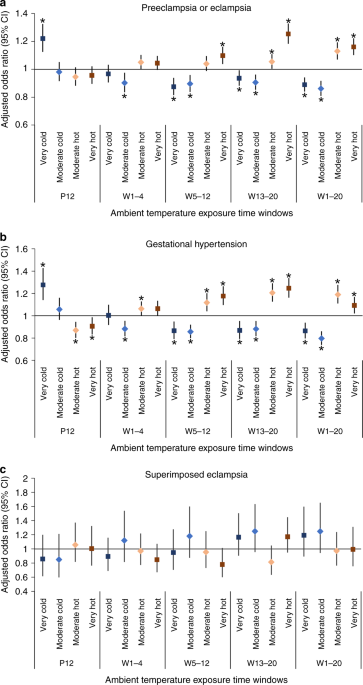- Select a language for the TTS:
- UK English Female
- UK English Male
- US English Female
- US English Male
- Australian Female
- Australian Male
- Language selected: (auto detect) - EN
Play all audios:
_Includes updates and/or revisions._ As the U.S. Supreme Court prepared to begin its 2009-10 term this week, it brought a new member, Justice Sonia Sotomayor, to the bench and the
prospect—if not the certainty—that the court would take up one of the school-related cases on which it is being asked to rule. The only explicit education case the high court has accepted so
far concerns a dispute over the repayment of federally backed student loans. That case, _United Student Aid Funds, Inc._ v. _Espinosa_ (Case No. 08-1134), is scheduled for oral arguments on
Dec. 1. But disputes with a more direct connection to K-12 education were bidding for the court’s attention as of this week, including the disciplining of a student who delivered a
religious testimonial at her graduation ceremony and a district’s removal of a children’s book about Cuba from its school libraries. In the book-removal case, _American Civil Liberties Union
of Florida_ v. _Miami-Dade County school board_ (No. 08-1564), the court took the unusual step of inviting a response from the defendant, the Miami-Dade County School Board, this summer,
after the board had initially declined to file any brief in the case. “The court issued an order inviting them to respond, which is a big deal,” said Michael D. Simpson, the assistant
general counsel for the 3.2 million-member NEA. “This one obviously caught the eye of somebody up there.” Meanwhile, at least five education lawsuits were on the list of cases the justices
were to discuss at a private meeting Sept. 29, although none of those were among the 10 cases the Supreme Court announced a day later that it would take up. The court did not say at that
time which cases it had refused to hear. The education lawsuits included disputes over the Pledge of Allegiance at school, displays of the Confederate flag on campus, and alleged sexual
harassment of a male student by his peers. Those cases were, in order, _Frazier_ v. _Smith_, _Barr_ v. _LaFon_, and _Hudson Area Schools_ v. _Patterson_. EYES ON NEW JUSTICE The new term
follows a term in which the high court ruled in several school cases, including high-profile decisions on strip-searches at schools, sex discrimination, and special education. (“Student
Issues Are Focus of Court,” July 15, 2009.) Taking her seat will be Justice Sotomayor, President Barack Obama’s first choice for the high court, who was confirmed by the Senate in August by
a vote of 68-31, with only nine Republicans backing her. She was sworn in Aug. 9 and replaces retiring Justice David H. Souter. Justice Sotomayor already has taken part in one high court
case that, while not directly related to education, is being closely watched by national teachers’ union officials. In a Sept. 9 special session, the court held oral arguments in _Citizens
United_ v. _Federal Election Commission_ (Case No. 08-205). The justices asked the parties to address whether the court should overrule two of its important campaign-finance precedents.
Officials from the National Education Association have indicated that the union does not wish for the high court to overturn those decisions, arguing that such a move would give an unfair
advantage to corporations in spending on elections. The NEA did not file a friend-of-the-court brief in the matter, though the AFL-CIO, of which the American Federation of Teachers is a
member, did. Legal observers will be watching Justice Sotomayor closely to see how she votes in key cases, including that one. A recent analysis suggests that she may well prove to be more
sympathetic to school districts in her votes on the Supreme Court than the justice she is replacing. The study, by Perry A. Zirkel, a professor of education and law at Lehigh University in
Bethlehem, Pa., examined Judge Sotomayor’s rulings on K-12 cases during her 10 years on the U.S. Court of Appeals for the 2nd Circuit in New York City, and those by Justice Souter during his
19 years on the Supreme Court. Justice Souter voted conclusively for districts 43 percent of the time, out of 37 school rulings. Justice Sotomayor voted conclusively for districts in 73
percent of the 39 school cases she heard. “Justice Sotomayor was ... clearly at least as and generally more favorable to school district defendants as Justice Souter,” Mr. Zirkel wrote. With
that in mind, Mr. Zirkel concludes that Justice Sotomayor is unlikely to reverse what he sees as the high court’s current trend of largely showing deference to school districts in court
rulings. Francisco Negron, the general counsel for the National School Boards Association, said his organization will be very interested to see where she comes down on school cases now that
she’s on the Supreme Court. He cautioned, however, that “based on the cases that have been accepted so far [this term], maybe this isn’t the year when we get to see how she reacts to the
school law issues that arise.” STUDENT LOANS The one education case the court has already accepted concerns whether a student who owes money on a federally backed college loan can avoid
repaying the debt without showing that making the payments would cause “undue hardship.” The U.S. Court of Appeals for the 9th Circuit ruled in favor of the student, concluding that the
lender had missed its opportunity to claim the full debt amount because the bankruptcy court had already made its final order discharging the student’s debts. Mr. Negron said the NSBA also
is watching with great interest _Perdue_ v. _Kenny A._, which concerns the question of whether a court can enhance lawyers’ fees if the quality of the representation and results delivered
are considered outstanding or extraordinary in some way. Such fee enhancements, Mr. Negron said, could prove a “potential drain on limited school resources.” ‘A VISIT TO CUBA’ A number of
cases more directly involving education remained on appeal to the court as of this week. The case in the 340,000-student Miami-Dade district concerns a children’s book called _iVamos a
Cuba!_, or _A Visit to Cuba_. A panel of the U.S. Court of Appeals for the 11th Circuit, in Atlanta, ruled 2-1 in February that the school board did not violate the First Amendment when it
removed the book from school libraries. The lawsuit arose after a parent objected to the presence of the book in his daughter’s elementary school. The parent complained that the book
contains inaccuracies and its descriptions about daily life, such as that “people in Cuba eat, work, and go to school like you do,” ignores the realities of the Communist regime under leader
Fidel Castro. Although a school district review committee, and the school superintendent, rejected the parent’s request, the school board then voted to remove the book, along with others in
the same series. The board’s decision was struck down by a federal district court but upheld by the 11th Circuit panel, which said in the majority opinion that “overwrought rhetoric about
book banning has no place here.” But in a dissent, 11th Circuit Judge Charles R. Wilson said it was clear the school board banned the book “not because of inaccuracies per se but because the
book failed to make a negative political statement about contemporary Cuba.” Mr. Negron, of the NSBA, said the case is “all about the ability of school boards and school districts to
control materials that are pedagogically suitable.” Another case the Supreme Court is being asked to take up, _Corder_ v. _Lewis Palmer School District_ (No. 09-257), deals with the
ever-contentious legal terrain surrounding high school graduation ceremonies. Senior Erica Corder was one of 15 co-valedictorians at Lewis-Palmer High School in Colorado in 2006, and each
was allowed to offer a 30-second valedictory message, according to court papers. Ms. Corder used part of her time to offer a testimonial to Jesus, even though such remarks were not part of
the speech she had submitted to the principal beforehand for review. The principal withheld the student’s diploma until she made a public apology. Ms. Corder sued the district, claiming that
her rights to free speech and to free exercise of religion under the First Amendment were violated.








